If you’re blessed with the normal human share of empathy and compassion, you probably can’t look at images from Hurricane Harvey and Hurricane Irma without feeling incredibly bad for the folks who have suffered—and are still suffering—so much from these unprecedented storms. We’ve seen homes flooded, and buildings ripped apart, and people trapped and waiting for rescue. We’ve watched as families are displaced, loved ones go missing, and survivors return home to sort through the detritus of their lives. It’s a nasty business, as anyone who’s lived through a major hurricane, or has watched the horrific images unfold on television, knows oh-too-well.
At the same time that our thoughts and prayers are with the hurricanes victims, much of the West is on fire. When I walk outside my Montana home, I see thick, acrid smoke cloaking the forest and obscuring the mountains, and I smell 30 years of accumulated ignorance, apathy and climate denial. And it’s not just here in Montana. A wetter-than-normal winter and spring were followed, amazingly, by the summer from hell across much of the West. Missoula, Montana just had the longest, hottest, rainless stretch on record. Seattle did as well. Spokane, Washington reported no measurable precipitation in either July or August. And as a result of this unnatural heat and drought, our western forests morphed into a match poised for the strike. If you haven’t seen pictures of this year’s fires in Montana, Washington, Oregon, British Columbia, Idaho or California, then you might consider watching the evening news, or googling “2017 wildfire photos.” It’s mind-blowing.
In fact, back in early August I sat down and described the fires in a story for the NY Times. Now, a full month later, our situation is even worse. Honestly, I’m not sure how that’s possible. But it is.
As we watch the devastation unfold, some of us from up close and others from afar, it’s only natural to take a few seconds and wonder why this is happening right now. Are these events natural? Are we in some sort of a cycle? Is it bad luck? Are televangelists right when they say that God is trying to send us a message? Or is there another explanation?

In case you’re wondering, there is, in fact, another explanation—a scientific explanation—and we can sum it up in two words: climate change.
As we’ve heard over and over again from the world’s top scientists and scientific organizations, human-caused climate change is real, it’s happening now, and it’s a huge threat to our future.
It’s true that climate change (or global warming, if you prefer) doesn’t cause storms or wildfires. What it does do, though, is make storms more powerful and floods more destructive and wildfires larger and more extreme. In essence, climate change tweaks the underlying conditions that influence storms, floods, droughts, heatwaves and wildfires, making them larger, harder to respond to, and even more dangerous. For example, climate scientist Kevin Trenberth estimated that, with regard to Hurricane Harvey, humans contributed “up to 30 percent or so of the total rainfall coming out of the storm.” That’s an extra 15 inches of rain causing huge issues for the people of Texas.

We also see human fingerprints on our western wildfires. As Trout Unlimited scientist Jack Williams pointed out recently, “Warmer temperatures combine with drier forests and longer fire seasons to create more and bigger wildfires in the West. It’s something that both fish and people will have to deal with. A good start would be to recognize what is driving the problem—climate change—and start dealing with it head-on.” Scientists believe that anthropogenic (human-caused) climate change is responsible for almost doubling U.S. forest fires over the last 30 years, compared to what would have happened without the influence of our greenhouse gasses.
One of the most alarming things we’ve seen this summer—almost on par with the hurricanes and wildfires—is the unwillingness of the Trump White House in general, and EPA administrator Scott Pruitt in particular, to make the connection between climate change and the disasters that are springing up on a daily basis. In spite of the clear linkages between stronger storms and global warming, Administrator Pruitt isn’t remotely interested in discussing the problem. He recently said: “To have any kind of focus on the cause and effect of the storm versus helping people, or actually facing the effect of the storm, is misplaced.” He went on to state: “to use time and effort to address it at this point is very, very insensitive to the people in Florida.”

That’s an awful lot like the doctor down at the local clinic saying, “I'm sorry, Mrs. Maloney, but as your husband's physician, I simply can't discuss his diagnosis until after his funeral.” In fact, it’s almost as if the Trump Administration has decided to go all ‘Fight Club’ on the situation: “The first rule of Climate Change is: You do not talk about Climate Change. The second rule of Climate Change is: You do not talk about Climate Change!”
Thankfully, state and local officials, along with many members of the media and a number of scientists, are picking up the slack and drawing the obvious connections. Tomás Regalado, the Republican mayor of Miami, stated: “This is the time to talk about climate change. This is the time that the president and the E.P.A. and whoever makes decisions needs to talk about climate change.” He added, “If this isn’t climate change, I don’t know what is. This is a ... poster child for what is to come.” Respected climate scientist Dr. Katharine Hayhoe was just as blunt: “We need to understand what’s at stake, because if not, we won’t act.”

At the end of the day, we have a clear choice in front of us. We can stick our head in the sand as storms rage and the West burns, or we can listen to the experts as we stand up for our kids, our country and our outdoor heritage. Honestly, it shouldn’t be a tough call. Within the last few days, the chorus has only grown louder. Republican Senator John McCain said, “We have to understand that the climate may be changing and we can take common sense measures which will not harm the American people and our economy.” Conservative columnist Jennifer Rubin wrote, “It’s time we started treating climate-change denial as a menace to public safety.” And Bob Inglis, the former Republican Congressman and JFK Profile in Courage award-winner, wondered, “Might it be time to do something, Mr. Pruitt, or shall we all assume your asinine position of science disputation?”
Here’s a news flash. When your fellow Republicans start calling out your “asinine position” on climate change, it’s time to stop playing politics and start doing your job.






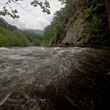
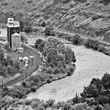
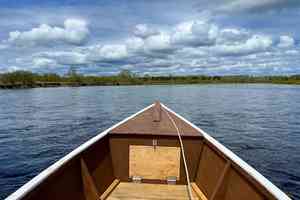


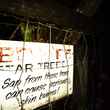
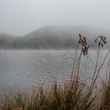
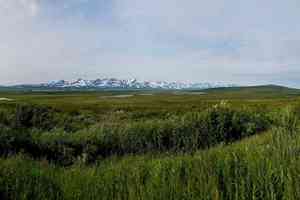

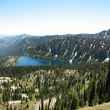

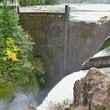




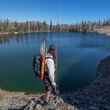








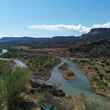
Comments
James Sawhill replied on Permalink
Is it a requirement of all "outdoor" interests for reasons of either ignorance or pressure from their useful idiots to support Climate Change in the Progressive Jihad?? This is pure hate and fear politics of the extreme left - who have nothing else.
Read actual climate science from climatologists such as Roy Spencer and then consider the activist political pandering of government bureaucrats such as Trenberth.
Andrew Wesner replied on Permalink
The problem with admitting and accepting human caused climate change at the policy level is that the "fixes" and their efficacy can't really be measured. Piling tons of regulation on industries with no real way to measure and pencil their effect will shock our economy in the short term and maybe not yield results for a generation or two. There isn't a measurable way to solve the problem. Because of this, it's a political nonstarter. Is human behavior negatively affecting climate change? Yes. Is it going to get worse if we don't take measures to limit our effect? Yes. Can we demonstrate a clear reduction of the effects through policy change in a four year election cycle? I haven't seen a proposal that can answer yes to this question. Not engaging is currently a better position to hold when seeking reelection. Maybe we should start there...
Pages